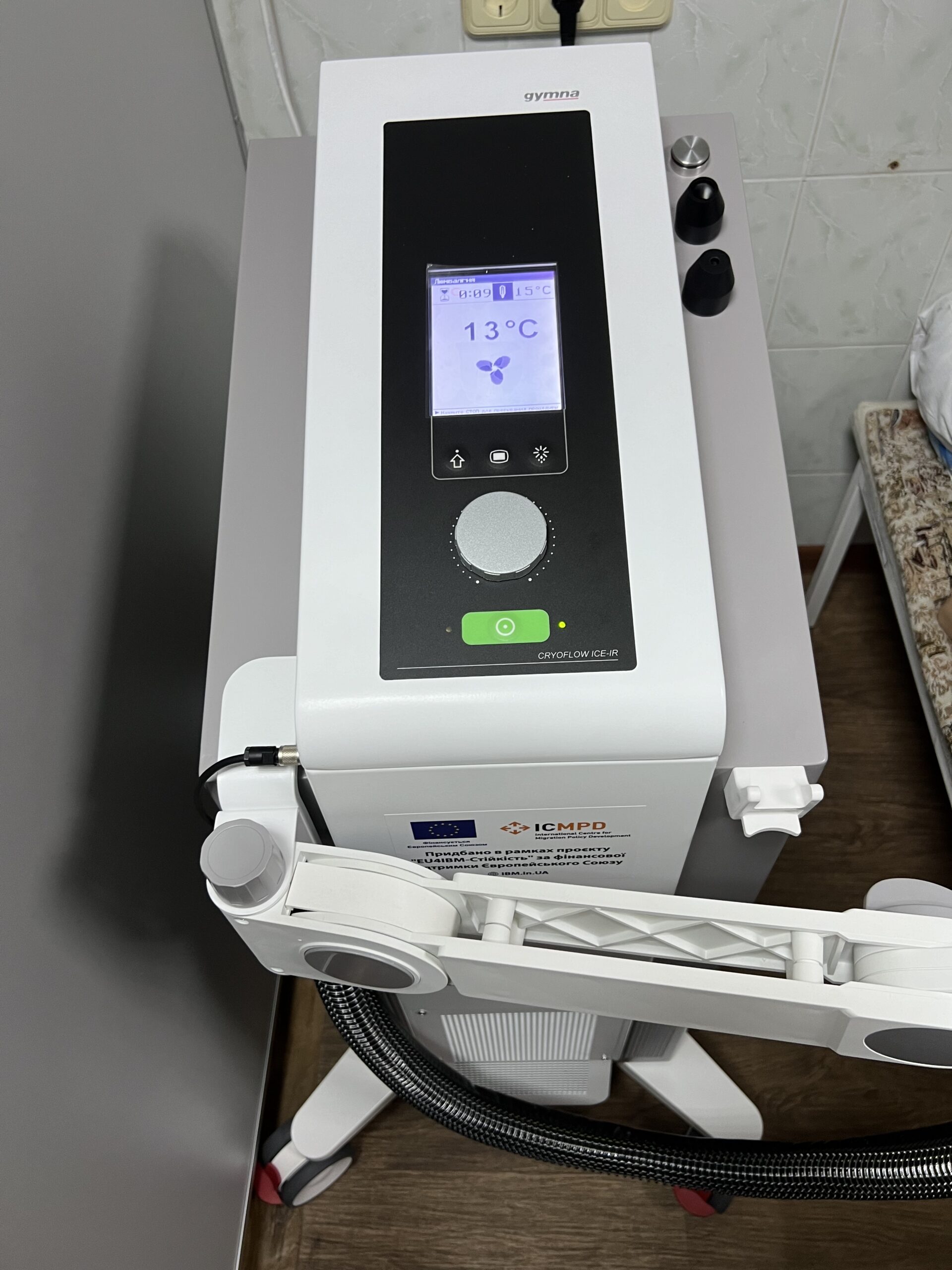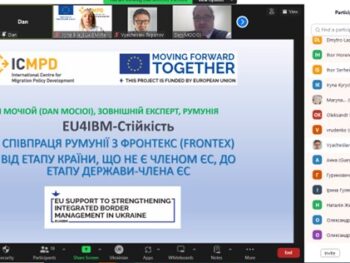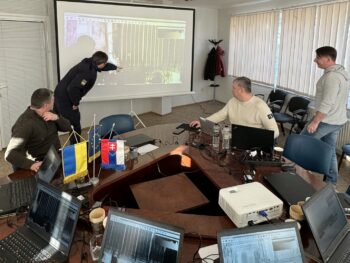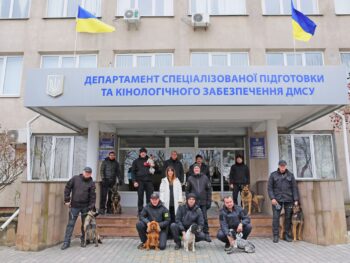On 31 January 2024, the EU-funded EU4IBM-Resilience project implemented by the International Centre for Migration Policy Development completed the delivery of physical rehabilitation equipment to the State Border Guard Service (SBGS) of Ukraine in the framework of a pilot initiative with a total worth of EUR 200,000.
The initiative was launched in close cooperation with SBGS to respond to the border guards’ most acute needs in the area of rehabilitation. It covers three SBGS medical centres and is aimed at creating a full-cycle recovery path for wounded border guards.
“In current exceptional circumstances, the State Border Guard Service’s role is not limited to border management and border control procedures. The SBGS servicemen and servicewomen are an integral part of Ukraine’s joint forces fighting off the Russian military aggression. We seek to support the resilience of the Service by helping them cope with the increased number of personnel requiring rehabilitation”, emphasizes Vyacheslav Toporov, EU4IBM-Resilience Project Manager.

The equipment was handed over to SBGS during November-January and included a number of items to support the treatment and especially the post-therapeutic recovery. For instance, exoskeleton aids the rehabilitation of individuals with traumatic spinal cord injuries, traumatic brain injuries, or muscular dystrophy by enhancing their mobility. Another valuable addition is the kinesio training device that includes versatile rehabilitation accessories and offers a wide range of exercises that strengthen muscles and improve flexibility. Its adaptable design caters to diverse rehabilitation needs and provides tailored workouts for individualized care.
Further enhancement of the rehabilitation toolkit is the adjustable rehabilitation stairs that feature adjustable heights and various step configurations to assist in gait training, balance improvement, and lower extremity strength development. The dynamic verticalizer supports lower limb development, thus facilitating independent walking and enhancing overall independence. Complementing these tools, cryotherapy devices are included to help alleviate body aches and reduce the circumference of treated areas.

Each delivery came with training sessions for the Agency’s medical personnel, ensuring they have the knowledge and skills needed for efficient use of the equipment. All provided devices significantly contribute to more personalized and effective rehabilitation care by supporting a full-cycle recovery for wounded individuals.

Upon the positive results of the pilot, the project team continues to cooperate with SBGS to identify further needs in this area and explore other funding opportunities to enhance the Agency’s rehabilitation efforts.





